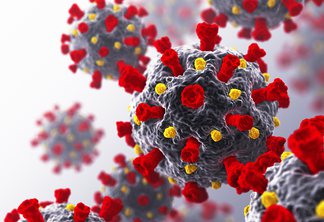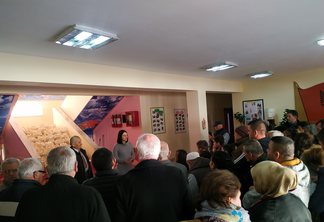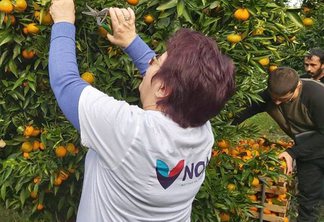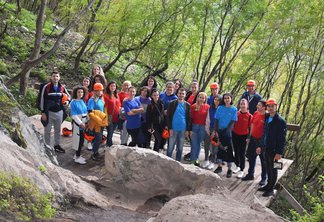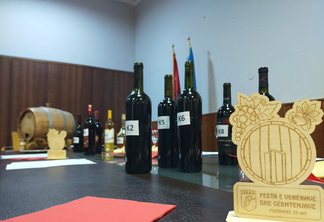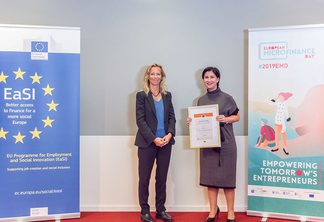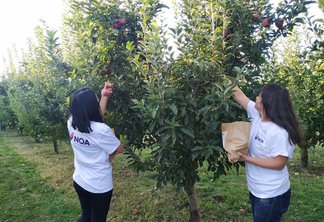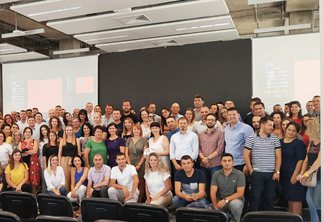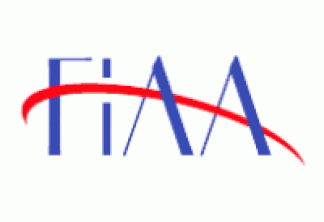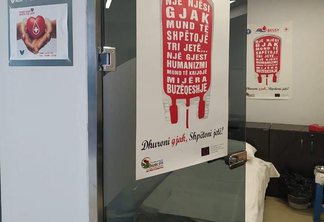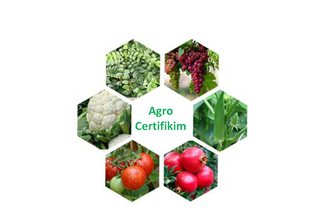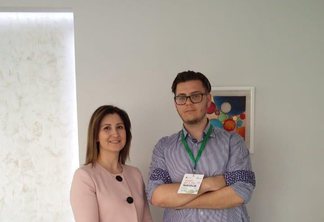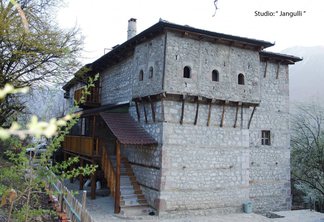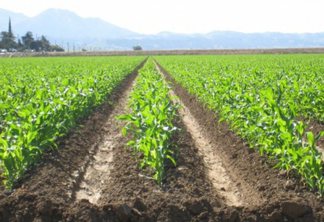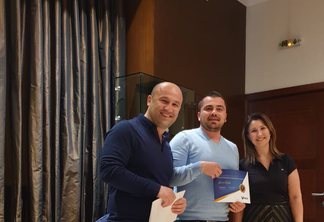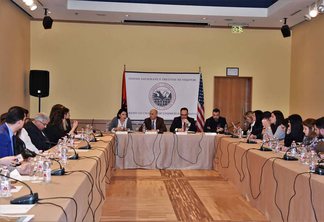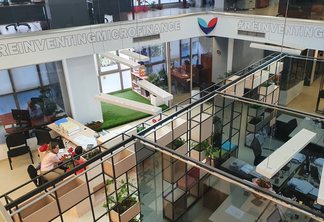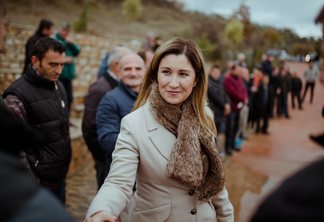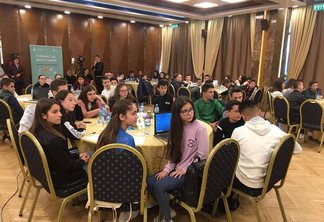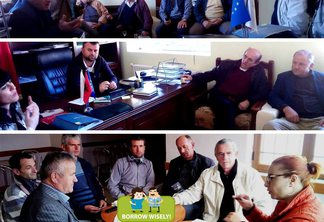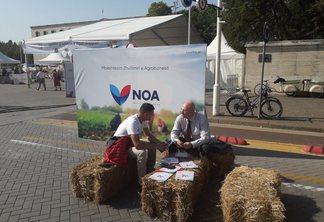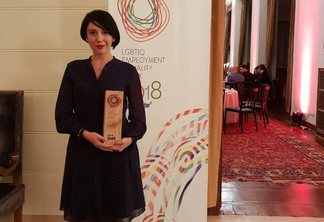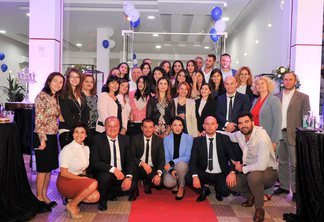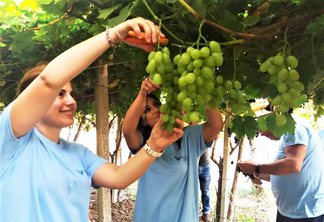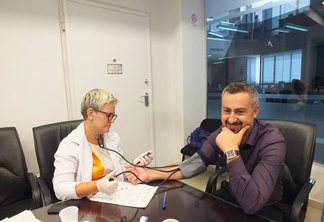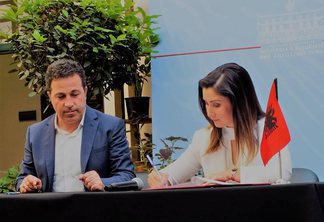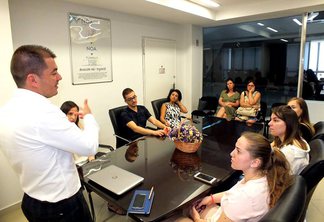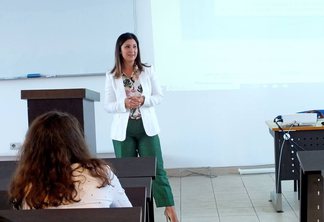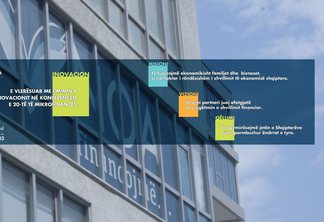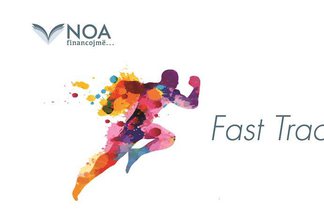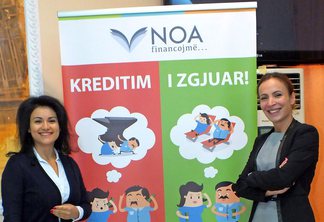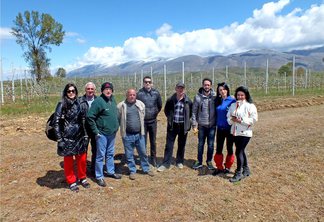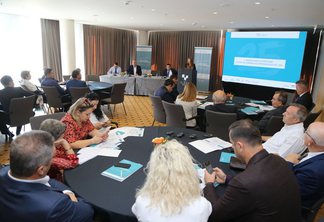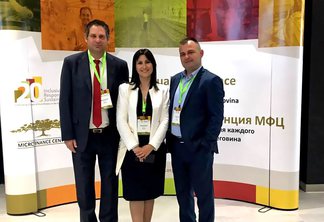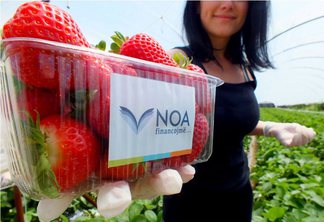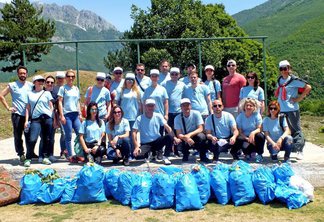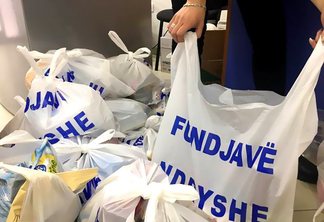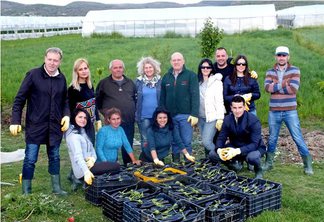
Covid19 / Albana Pelinku: Financial risks for small businesses & farmers, a microfinance perspective

Albana Pelinku, Director of the Risk Department at NOA financial institution, spoke about the difficulties and risks faced by every business in the country which is affected by the pandemic. In addition to the difficulties, she also spoke about the support that microfinance offers during this period in supporting business 'recovery'.
What are the risks that the Albanian family business and the farmer are going through this period?
The global pandemic was an underestimated risk scenario in the past, out of all the risks that financial institutions could assess. The pandemic outbreak paralyzed most economic activities as a result of the imposed restrictions, while at the same time caused insecurity that came as a result of the feeling of not knowing the future, a feeling that is still present even today.
Assessing the situation and the risks that small businesses and families are going through, or even farmers who are indirectly affected, which come as a result of restrictions imposed on their normal daily activities, we can point out the decline in revenues and liquidity stalemate, factors that contribute more on the deterioration of these indicators regarding insecurity for the future.
One of the risks that small family businesses and farmers are going through are losses due to fixed/ operating costs while the activities have been closed. Here we can cite e.g. rent payment, utilities, taxes and fees and interest expenses which will be paid, causing not only lack of profit, but also loss; or will be recognized as liabilities to be paid later, thus increasing the debt burden.
Another risk is loss due to seasonality. A good portion of these businesses have purchased inventory for the previous season, while the pandemic closure paralyzed this season, and now small businesses need to prepare and have inventory for the next season. This remaining stock investment is accompanied by a lack of liquidity, as the inventory is not converted into money which is needed to invest in the new season. On the other hand, the main problem of the Albanian farmers, who have produced the seasonal products in this period, is the lack of market for the product sale due to the closure of domestic markets and the export suspension. This has created significant losses and lack of liquidity in this period.
Finally, we can mention the risk of capital decline - considering the fact that family businesses have profit rates and capital levels that are affected by family consumption expenditures. If they lack profits, they have to withdraw money from the business to cover family expenses.
However, despite identifying these risks cumulatively or individually for each client, we would like to stress the fact that NOA has never suspended lending and assistance to its clients.
How can microfinance help Albanian entrepreneurship and agriculture?
The most affected businesses by the restrictions imposed due to the pandemic are: free professions - craftsmen, plumbers, electricians, builders; tourism, mainly family tourism; artisans; passenger transport, taxis; bars and restaurants; clothing stores; ambulances; private kindergartens /nursery homes; small farmers / farmer families.
What all these businesses have in common is that almost 90% of them are family business or small businesses, businesses that are mainly financed by non-bank financial institutions. According to data from the Association of Microfinance Institutions (AMI), NBFIs finance a substantial portion of small and medium-sized businesses in the country and about 80% of the total agricultural loan portfolio in the country. Meanwhile, only NOA portfolio involves 41% of small businesses and family businesses, out of which 23% belongs to the Agro sector or otherwise known as Farmers.
Regarding the management of this situation, it is worth noting that NOA has been responded very fast paying maximum attention to the customer service at any time and in every branch. By identifying the potential risks that our clients could experience, NOA immediately took a proactive approach towards all of its clients, by contacting all the clients respectively in order to get better information on the situation of each of them, making no exception. Understanding as clearly as possible the difficulties that the respective business would have as a result of the global pandemic and assessing the period needed for recovery was the first support that the institution undertook for its clients.
Based on the information received, the focus initially shifted to rescheduling, deferring installment payments by offering a number of alternatives to the clients as well as personalizing deferral options according to the business typology and the long-term or short-term impact that was predicted for this business.
Alongside, a new product called 'Progressive Installment' was created, which aims at financing our customers for operating expenses affected by the current crisis, giving them the opportunity to pay a smaller and more affordable installment for the first period until they recover.
This is a very critical moment for Albanian small businesses and farmers as they need our support in order to overcome the difficult economic situation they are currently facing. Today most of the businesses are almost open and there is a need to recover their activities by having liquidity need or payment facilities, therefore we consider this period as very important to be close to our customers and to provide financial support with products tailored to their needs
Throughout the pandemic period we have been very active in providing financial facilities through the possibility of installment deferrals for any directly affected customer and we will continue to support our customers for any need they have. On the other hand, we have continued our lending activity and we will continue to be even more active in the coming period.
Our institution has already resumed full activity and we are ready to help businesses of all sectors, by supporting the affected businesses which are expected to be opened in the coming weeks.
The pandemic was a challenge for all of us, but NOA once again proved that even in a pandemic situation its mission continues to be economic empowerment of families and businesses, as an important factor in the development of the Albanian economy, in order to improve the lives of Albanians.
What is NOA, as a financial institution, currently facing?
Like all other businesses, NOA has assessed potential risks and pessimistic scenarios in cases of stress testing. At the beginning, we immediately adapted the lending process and set certain limits on the amount of financing or on the decision-making authorities; such measures were taken in conditions when it was still unclear to the entire financial system how long the restrictions would continue; improper interpretation of the decision regarding the payment deferral of loan installments, which could lead to lack of liquidity; the lack of support from the Government regarding non-bank financial institutions, by not including them in any support scheme, i.e the Sovereign Guarantee, while the businesses affected by this situation are mainly the small and family businesses that can have access to funds only through microfinance; and finally, we were uncertain about the international partners’ response, who inject funds through financial institutions like NOA in the Albanian economy.
Despite the difficulties that we faced at the beginning, we can proudly say that NOA has succeeded in managing the situation of Covid-19, due to the implementation of the well-defined strategic steps as a result of quick and accurate assessment of potential risk scenarios, rapid reaction and mitigation of those situations and risks which would lead us to a stalemate in terms of liquidity, but above all thanks to the tireless work of all staff in implementing all the strategies correctly and in a timely manner, while taking care of maintaining health and respecting protective measures.
Të reja të tjera



Communication to the public
16.03.2021
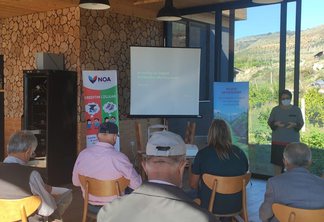

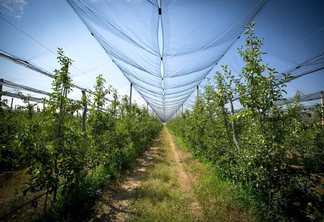

#ChooseAlbania
22.04.2021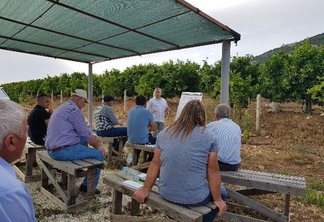
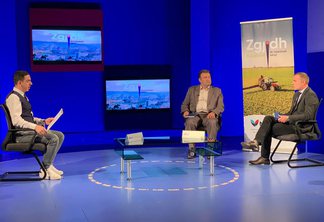



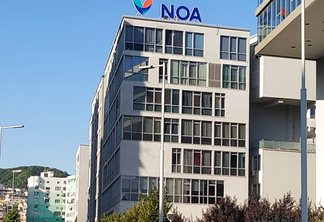

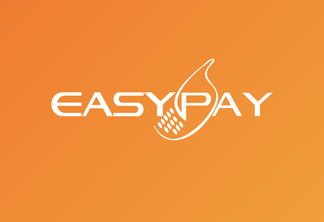
Pay your instalment at any EasyPay point!
22.04.2021
